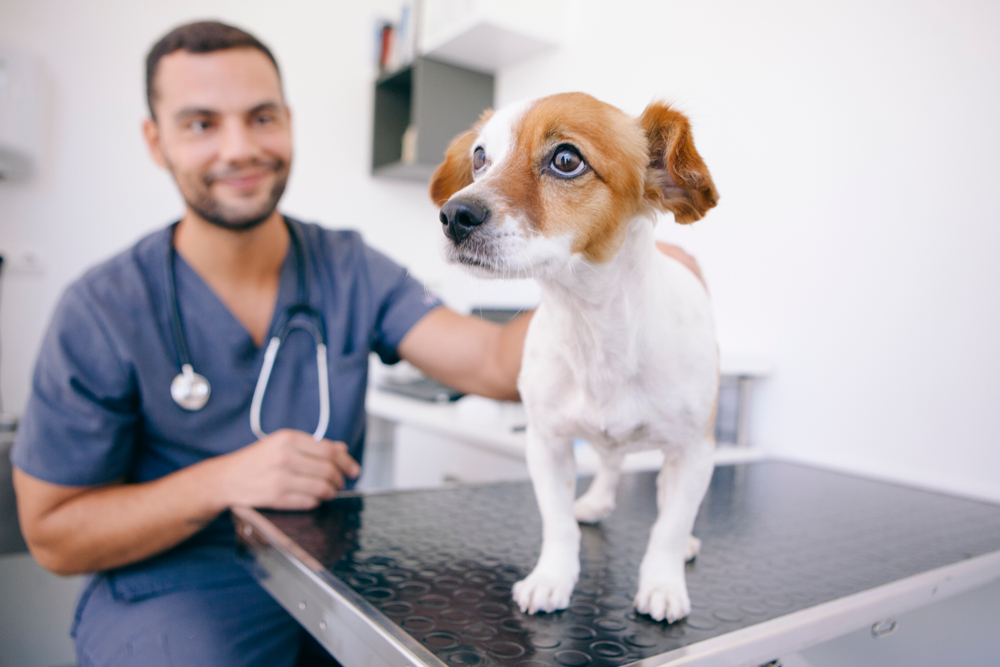Puppy Outbreak: What Dog Owners Should Know About Campylobacter

Disease outbreaks among humans are common. But outbreaks among humans from puppies? That's a scenario that's much rarer, and the Centers for Disease Control and Prevention recently explained how this odd outbreak persisted for three years, in a new report, published Sept. 21.
Between 2016 and 2018, 118 people in 18 states were sickened with the intestinal bacterium Campylobacter jejuni. Some of the people were hospitalized, and the infection was difficult to treat, because the bacteria were resistant to a few of the typical antibiotics typically used.
The CDC tracked the source of the infection, and found that it stemmed from puppies that carried C. jejuni with them from breeders to pet stores and eventually, to people's homes. [11 Ways Your Beloved Pet Can Make You Sick]
But how exactly did this outbreak happen? And is it something all puppy owners should be concerned about?
For starters, recorded C. jejuni outbreaks in dogs are uncommon, said Dr. Michele Jay-Russell, a veterinary public health researcher at University of California Davis. These infections typically come from livestock, Jay-Russell told Live Science — the bacteria can live in the intestines of an animal without causing harm, and leave their bodies in feces. If people consumefecal-contaminated foods or a raw animal product, like raw milk or undercooked chicken, they could get sick. "It doesn’t make the same headlines as E. coli…but it’s common and knocks people out for a couple of weeks. It’s more than just a tummy ache," she added.
The bacteria can behave similarly in dogs as they do in farm animals, which is to say, they don't cause harm to the animals. Some of the puppies in the recent outbreak probably got sick because they ate poop from other dogs at the pet store, Jay-Russell said, or, yes, licked another dog's rear end and ingested droppings. And because the pups were young and likely stressed in their new situation, it's possible that they hadn't built up immunity to the bacteria like other dogs might.
But the fact that 29 of the people who got sick were pet store employees was a "red flag" that sanitation guidelines were skipped, Jay-Russell said. "There were protocols that obviously weren’t in place," she said.
Sign up for the Live Science daily newsletter now
Get the world’s most fascinating discoveries delivered straight to your inbox.
If dog owners don't skimp on cleanliness procedures, they likely won't get sick from any bacteria on their pups. Washing hands after playing with dogs, picking up poop and keeping food bowls clean can go a long way, Jay-Russell said. And while the raw food diet for dogs might be trendy, she added, feeding dogs raw chicken runs the risk of feeding them C. jejuni.
Jay-Russell also said that, besides regular checkups, puppies only need to see the vet if they're obviously unwell. Diarrhea, for example, can be a symptom of the bacteria. But even then, loose poops don't mean the puppy is fighting off the bug. A veterinarian can sample the waste and determine what the cause might be. If it's bacterial and they prescribe antibiotics, use them as directed, Jay-Russell said. If your dog is better before the dosage runs out, don't hold onto the pills until the next time your dog has the runs. Unprescribed use of antibiotics is why bacteria, like the kind that infected these 118 people, builds up drug resistance. Instead, throw them away or return the pills to the vet, Jay-Russell said.
For the most part, this outbreak was due to a few unfortunately factors aligning to cause dozens of illnesses. If you don't want to see it in your own home, Jay-Russell said, there’s a good rule to live by: "Assume that dog feces have germs, and be careful."
Editor's note: This article was updated on Oct. 1 to clarify Jay-Russell's comments about when dogs should be taken to the vet.
Originally published on Live Science.










